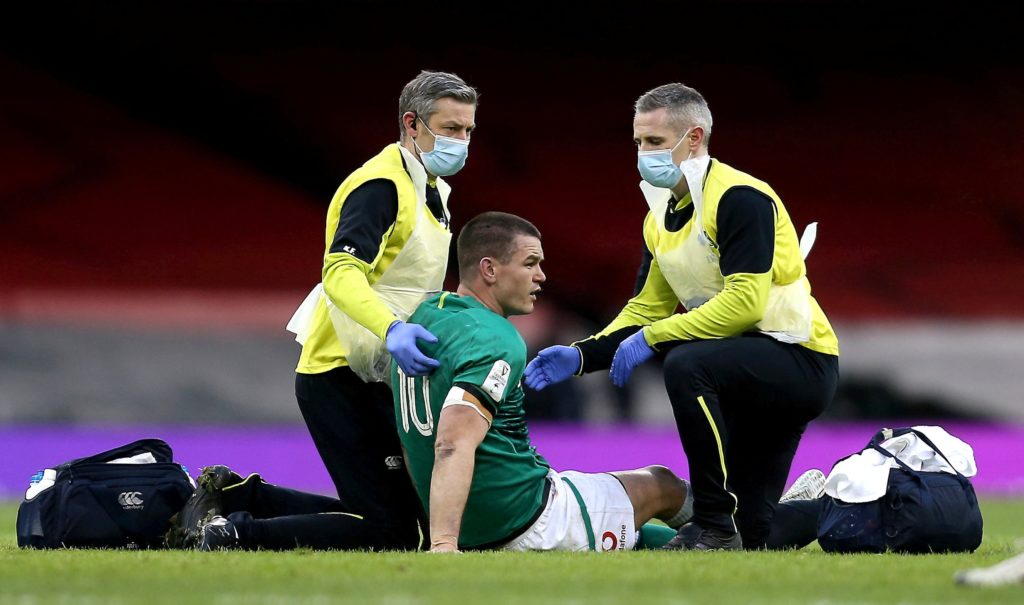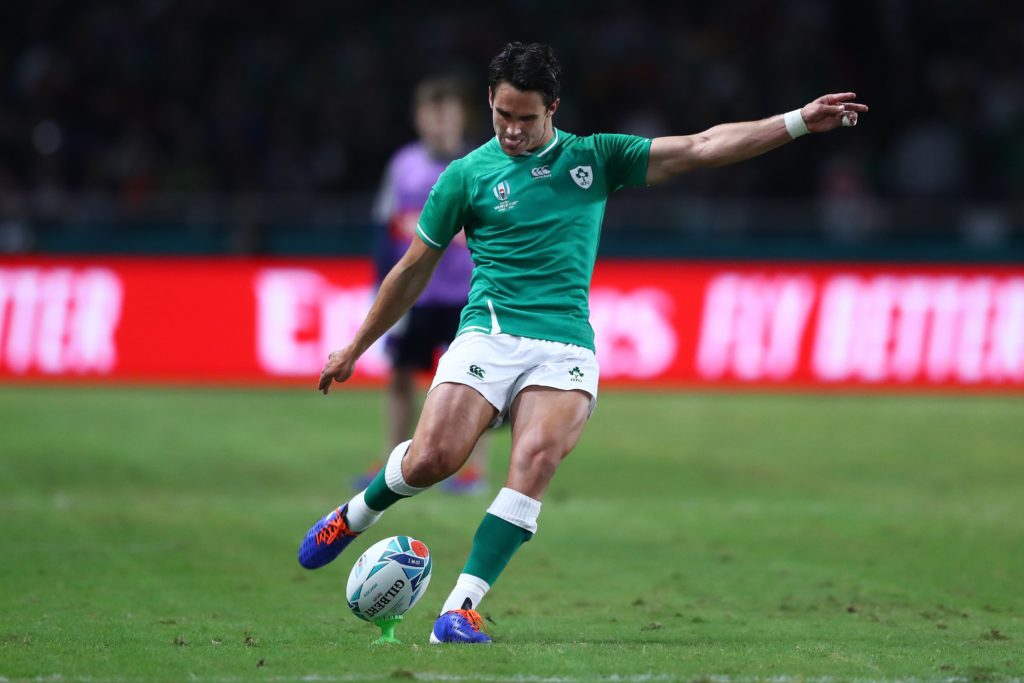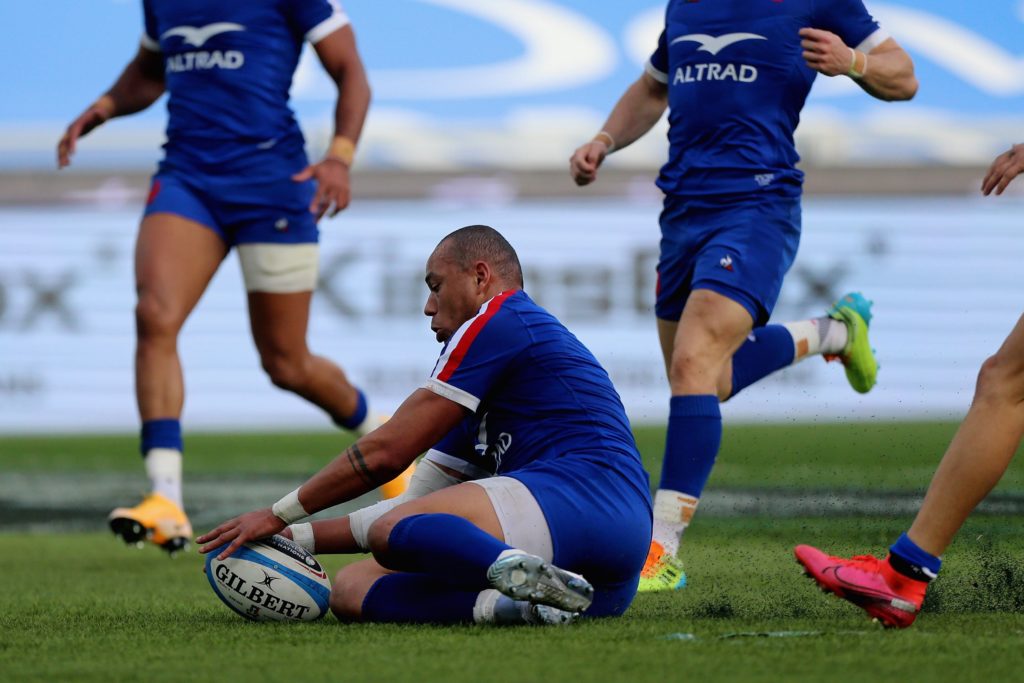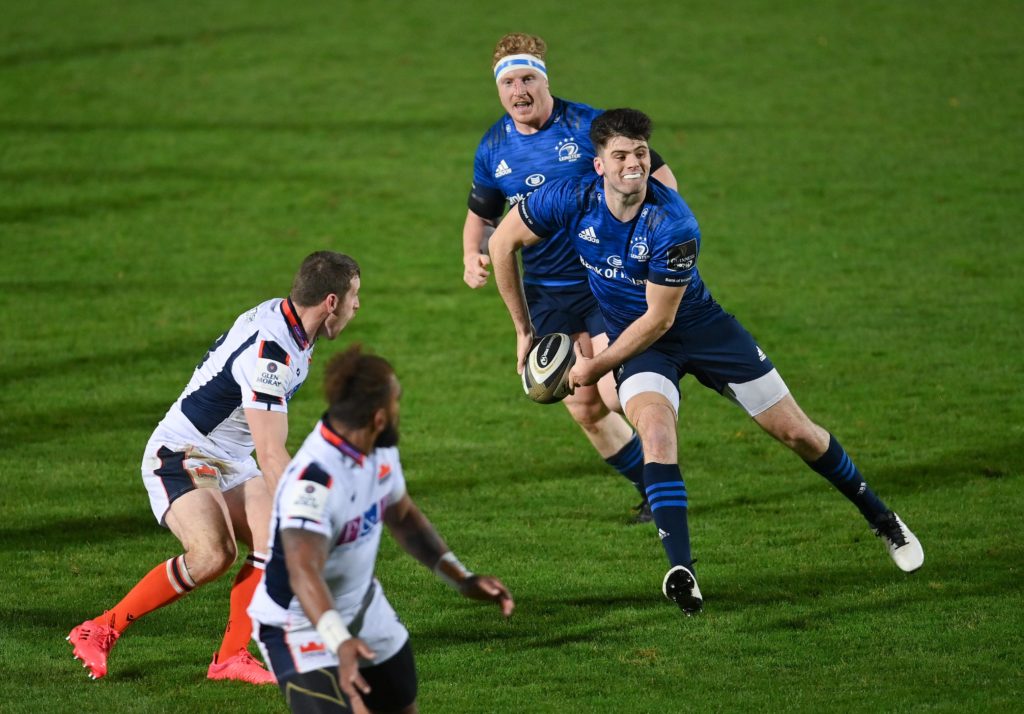It seems we can count Andy Farrell among those who put little credence in Malcolm Gladwell’s ‘10,000 hour’ theory. It was in a 2008 book ‘Outliers: The Story of Success’ that the New Yorker journalist put forward the idea that 10,000 hours of practice is “the magic number of greatness.”
From proficient violinists through to The Beatles and Bill Gates, the idea summarised that where there was distinction, there was 10,000 hours of hard graft behind it. In more recent years, the notion has been criticised as something of an over-simplification, one given increased credence by mankind’s love of a memorable, round number.
Given that such a figure would equate to 7,500 Test matches, it never had much of a role to play in the thinking around the Rugby World Cup yet the search for a magic number is similar – just how many caps is the ideal for a team on the hunt for the Webb Ellis trophy?
During his Six Nations media conference in between the Italy and Scotland games, Ireland’s Farrell was asked a question along such a theme. Formulae, he seems to believe, are for mathematicians not international rugby coaches.”I’m not that rigid,” he said plainly. “I like guys who are going to add to the team because they’re in form and they’re confident and they’re able to. That’s what’s at the forefront of my mind.”
Detractors have said that such deals have become more of a reward for past achievements than an accurate reflection of current importance, the equivalent of a nightclub with a long queue and strict door policy but not a bouncer in sight once you’re on the right side of the velvet rope.
That the conversation had drifted into such territory was the product of Ireland’s latest raft of central contracting – Johnny Sexton, Peter O’Mahony and, announced after Farrell spoke, Cian Healy and Keith Earls all inking fresh terms with the IRFU.
There is no hard and fast rule to Irish Rugby’s contractual system, one in which those expected to make the greatest contribution to the national side sign directly with the union rather than their provincial side.
Theoretically, it was once thought that the ideal would see the starter in each position rewarded with this increased status but numbers in the group are dropping and, as an example, there are presently no hookers but three centres on the central payroll. It is undeniable that the model has paid off considerably for both the national side and the provinces over the years but – this is Irish rugby after all – it has often led to accusations of selection and geographical bias.
Detractors have said that such deals have become more of a reward for past achievements than an accurate reflection of current importance and a standing that is harder to earn than to lose, the equivalent of a nightclub with a long queue and strict door policy but not a bouncer in sight once you’re on the right side of the velvet rope.

New deals for four players over 31-years-of-age in such quick succession was only ever to be grist to that particular mill. Had Healy (33) saw his career ended in 2015 by the neck injury that led him as far as signing retirement papers, the explosiveness he brought to those first years in a green jersey would still have seen him remembered as Ireland’s first archetypal modern-day prop forward. That he battled back, first to fitness and then to become the country’s most-capped prop of all time last month, ensures his face is on the Mount Rushmore of Irish looseheads, alongside Nick Popplewell, Tom Clifford and Phil Orr.
There are sure signs, though, that he is not quite the player of old, his influence undeniably on the wane with his back-up at national level, Dave Kilcoyne, increasingly viewed as the more dynamic option, even if the Munster man is a fellow over-30.
Earls, who is five days older than Healy, finds himself in a similar boat. Ireland’s second highest try-scorer in history and something of a cult hero, feels closer to his peak form but it would still be a feat if he were to hold off younger men like James Lowe, Jacob Stockdale and Jordan Larmour for much longer, while Ulster’s uncapped Robert Baloucoune is fit-again having trained with the senior squad prior to the first lockdown. But if the places of Healy and Earls are under increasing threat, O’Mahony has perhaps already lost his own.
Farrell has given debuts to three back-rowers already in his 13 months in charge of Ireland with both Will Connors and the presently injured Caelan Doris having seized their opportunity. O’Mahony has been written off before of course, and has previously swung from losing his place in the Ireland side to captaining the Lions in the space of a mere three months, but there is no guarantee he will be parachuted back into the number six jersey he has worn with such distinction when he returns from his current suspension.
Just because somebody pops up and plays four or five games that are really good, as far as international rugby is concerned, it’s about consistency at this level to prove your worth.
Andy Farrell
“Well, to get a central contract, if you look at the history, you show continuity at this level to be a top class international player,” said Farrell when asked of the logic of a central contract for a player who faces a fight for his role moving forward.”That’s the remit that everyone understands and that’s what we see too.
“Just because somebody pops up and plays four or five games that are really good, as far as international rugby is concerned, it’s about consistency at this level to prove your worth.
“I suppose that’s how we’ve always worked and how we’ll continue to.”
Such arguments do not yet belong in the conversation around Sexton. While two years older than Healy and Earls, his preeminence in the Ireland team remains apparent, the 2018 World Player of the Year continuing to show that, even if he is no longer at his very peak, he is certainly still Ireland’s best number ten. In years gone by, it was assumed that Paddy Jackson, and later Joey Carbery, would have surpassed the two-time British and Irish Lion by this stage of his career but the Leinster fly-half still demonstrably sits a level above all the other options that have been available to Farrell to date.

The relative luxury of the past overlap between Sexton and Ronan O’Gara, and before that O’Gara and David Humphreys, is not in play here. As recently as last December, Sexton bristled somewhat that he “wasn’t going to retire just because you guys (the media) want me to” – and indeed Brian O’Driscoll recently expressed the concern that his former team-mate was being “rushed out the door”. However, before the recent Italy game, the skipper admitted that he “might not” be around by the 2023 World Cup.
That’s entirely understandable, given that he’ll be a 38-year-old then, the same age his one-time contemporary Dan Carter was when he recently announced his retirement (almost six years after his last Test cap). And therein lies the crux of the debate – are Ireland best served by making decisions based upon the here and now or with a view to improving their chances of success in France two years out?
The signers of Ireland’s four most recent contracts have all given an immense amount to Ireland over the course of their careers to date and, with their nous and knowledge, will likely continue to be assets for the duration of their new deals. Father Time, though, is undefeated and should this collection of former Lions run out of road before 2023, there will be precious little time for their replacements to have bedded into key roles before the World Cup.
When Farrell spoke of Sexton and O’Mahony as both “important pieces of the jigsaw”, it was unclear if the puzzle in question referred to the particularly challenging section where the sky and sea are just too similar a shade of blue that is to be tackled in the immediate present or the big picture on the front of the box.
Father Time is undefeated and should this collection of former Lions run out of road before 2023, there will be precious little time for their replacements to have bedded into key roles before the World Cup.
Only he will know, but the nation’s wretched history at the tournament, where they have never advanced to the semi-finals, has led to increased calls to take a more long-term view with such a stance only fortified by the pool stage draw.
With just two of themselves, South Africa and Scotland able to advance to the quarter-finals, and the reward in the last eight almost certain to be one of the All Blacks or France, for Ireland to finally break through their persistent glass ceiling will require the negotiating of waters choppier than those that have left them splintered upon the rocks in past editions of the global showpiece.
The only northern hemisphere side to win the World Cup, Clive Woodward’s England, are often viewed as the perfect example of a side for whom the tournament arrived at the ideal moment. More than a quarter of the squad boasted over 50 caps, with no member of their 2003 travelling party younger than 24-years-old.
Battle-hardened without being battle-wearied, old enough to know what to expect while young enough for the rigours of the demanding schedule. It is no surprise that Woodward has already publicly backed France to emulate the feat of his past charges and become a European World Cup winner.
Motivated in no small part by performing on home soil, Les Bleus have appeared to be building with at least one eye on 2023 for quite some time. When Fabien Galthie took charge, his first training camp featured 19 uncapped players, a ruthless house cleaning exercise that swept aside the experienced, the established and the over-30s with little sentiment.

In that first panel, only Bernard Le Roux was in his fourth decade, the then-25-year-old Gael Fickou the most capped player. That Galthie’s focus on youthful exuberance sparked an upturn in fortunes without the teething problems that were expected to precede such success have prompted more than a few green-eyed glances from the green-clad masses.
When a half-back pairing with a combined age of only 46 authored a first French win in Dublin for a decade earlier this year, ending Ireland’s hopes of an always unlikely Six Nations crown with three games remaining, it only heightened calls that Farrell should place his faith in those who will be there at the end of this World Cup cycle and even beyond.
The Six Nations has always been such a foundation of rugby in this part of the world that the idea of naming a team not best placed to win on a Saturday, but one with a view to winning further down the track, has been viewed as something of a black mark against a sacrosanct tradition.
To lose their first two games for a first time since 1998, in a championship without paying punters, and at a time when world ranking points have never been more inconsequential, however sparked the debate anew.
The Six Nations has always been such a foundation of rugby in this part of the world that the idea of naming a team not best placed to win on a Saturday, but one with a view to winning further down the track, has been viewed as something of a black mark against a sacrosanct tradition.
Leinster’s Harry Byrne was the recurring name. Long since anointed an Irish ten of the future at 21-years-old, ex-pros turned analysts Alan Quinlan, Keith Wood and Liam Toland were all interviewed on Newstalk’s Off The Ball radio programme ahead of the squad being named to face Italy in round three repeating variations of the same theme – that it may be time to see if he’s ready to be the ten of the present.
O’Driscoll, who played for Ireland before even making his Leinster debut, was even quicker out of the gate, posting “Speed dial Harry Byrne” on social media in the immediate aftermath of the opening round loss to Wales.
If only it was that simple. The reality is that Ireland cannot just replicate France’s blueprint. To do so ignores the differing constraints this coaching ticket is working against. When France finally decided definitively that Camille Lopez, four years Sexton’s junior, was not to be the man for their ten jersey in the future, Galthie had the option of backing Romain Ntamack, Mathieu Jalibert or Louis Carbonel, three gifted playmakers who could all have multiple World Cups ahead of them but, crucially, have also already played over 50 times for their clubs, Toulouse, Bordeaux and Toulon respectively.
Harry Byrne, in contrast, has just 18 minutes of Champions Cup action under his belt, stuck behind both Sexton and his older brother Ross at the RDS for almost all the big games.

Ireland’s next generation cannot boast the pedigree of France’s back-to-back under-20 world champions of 2018 and ’19 but nor are they getting the same opportunity at club level, where every aspirant international is stacked on top of each other at only four teams.
It is an irony that another promising out-half, Munster’s Jack Crowley, would have likely improved his readiness for the Test arena while simultaneously making himself unavailable for Test selection had he taken up Ronan O’Gara on the offer of a move to La Rochelle earlier this year.
As Farrell has rightly pointed out, thankfully not all teams must follow the same path to success. At something of a nadir in 2017, reigning world champions South Africa dramatically pivoted mid-cycle before claiming victory in Yokohama two years later to offer a reminder that the competition does not necessarily require a 48-month advance plan.
Still, if we sit the tournament’s most famed example of older heads succeeding in one last shot at glory, the New Zealand squad of 2015 and their almost 1500 caps, alongside the tournament’s most documented flop, the inexperienced English hosts of the same year with a comparatively paltry combined 789 caps, the ideal for Farrell in 2023 is surely to fall somewhere between the two.
Should Ireland spend too much of their limited preparation time relying upon the likes of an aging quartet – only for them to bid farewell before France 2023 – then there will remain the fear that another World Cup will instead merely fall between two stools.
More Ireland stories
More Ireland stori
If you’ve enjoyed this article, please share it with friends or on social media. We rely solely on new subscribers to fund high-quality journalism and appreciate you sharing this so we can continue to grow, produce more quality content and support our writers.



Comments
Join free and tell us what you really think!
Sign up for free